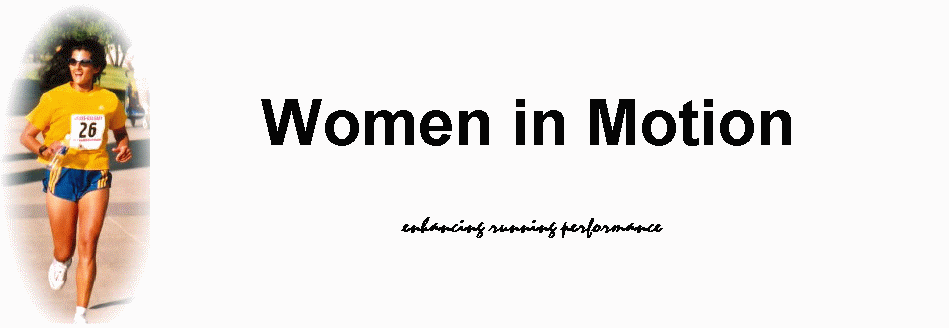| MENU |

Eating to Run
What you eat before, during, and after a race certainly affects how you will do during the race. What to eat and when to eat it may seem confusing. However, the reality of what to eat is much simpler, and much more sensible, than many people think. Optimum utilization of the energy systems for training assumes that you ( the runner) are getting an adequate fuel supply. Getting that adequate nutrition during hard training can be a real challenge for athletes. Many runners have a tendency to underfuel themselves especially those worrying about weight control. Underfueling can lead to sluggishness, fatigue, poor performance, injury and even permanent alteration (lowering) of basal metabolism. If you are having problems getting adequate nutrition, it may be helpful to visit a sports dietician or nutritionist to get a dietary plan that works for you. Before the Race The weeks before a race, you should be focusing on eating enough food to meet your calorie requirements. Your diet should be high in carbohydrate (about 50-60% of your total calories) to fuel your body properly (refer to previous articles for discussions on fueling your body for exercise). Fluid Intake Adequate fluid intake is very important. Be sure to stay hydrated during training. A good way to tell if you are adequately hydrated is to check your urine. If you frequently urinate large volumes that are light in colour, your probably drinking enough. If you do not urinate frequently or if your urine is dark coloured, you may need to increase your fluid intake. During your training, be sure to try out what you will eat and drink on the day of the race. Eat what you are planning to eat at the same time you plan to eat it on the day you are doing a distance run if you are training for a distance race (10K, half or full marathon, for example). The Day Before the Race Rest the day before an event, and focus on eating about 70% of your calories from carbohydrate. Double your water intake. Be sure you have everything you will need to eat and drink thought through and ready to go if the race is in the morning. During the Race Be sure you eat only what you are used to the day of a race. This is no time to test out new foods. Always follows what works best for you. In general, avoid big meals 2-3 hours before an event. Small meals that are lower in fibre, fat and protein may be better tolerated. Within an hour of the race, snack on only those things that you know you can tolerate. Some people experience low blood sugar during a race if they eat very sugary things within one hour of racing. Others feel nauseated if they eat anything an hour or two before running. Be sure to drink fluids frequently. Drink 2-3 cups of water 2 hours before the race; 1 1\2 to 2 cups 15 minutes before; and 1 cup every 15 minutes during the race. If your race will last over 60-90 minutes, drink fluids that contain carbohydrate and sodium. The carbohydrate will help provide energy during the race; the sodium may: 1) help drive you to drink more, 2) taste better, and 3) promote fluid retention. After Exercise Replenishing your fluid stores is very important. Check your urine for a day or two after the event to help you determine if you are hydrated enough. What you eat after exercise is important, especially if you will begin training again soon. Your body replenishes its glycogen (carbohydrate) stores fastest if you eat food within two hours of exercise. Replenishing the electrolytes lost during exercise is important, but can usually be accomplished with a balanced diet. Sports drinks can help immediately. You can make a difference in your performance by focusing on what you eat!
Women in Motion May 2001 |

